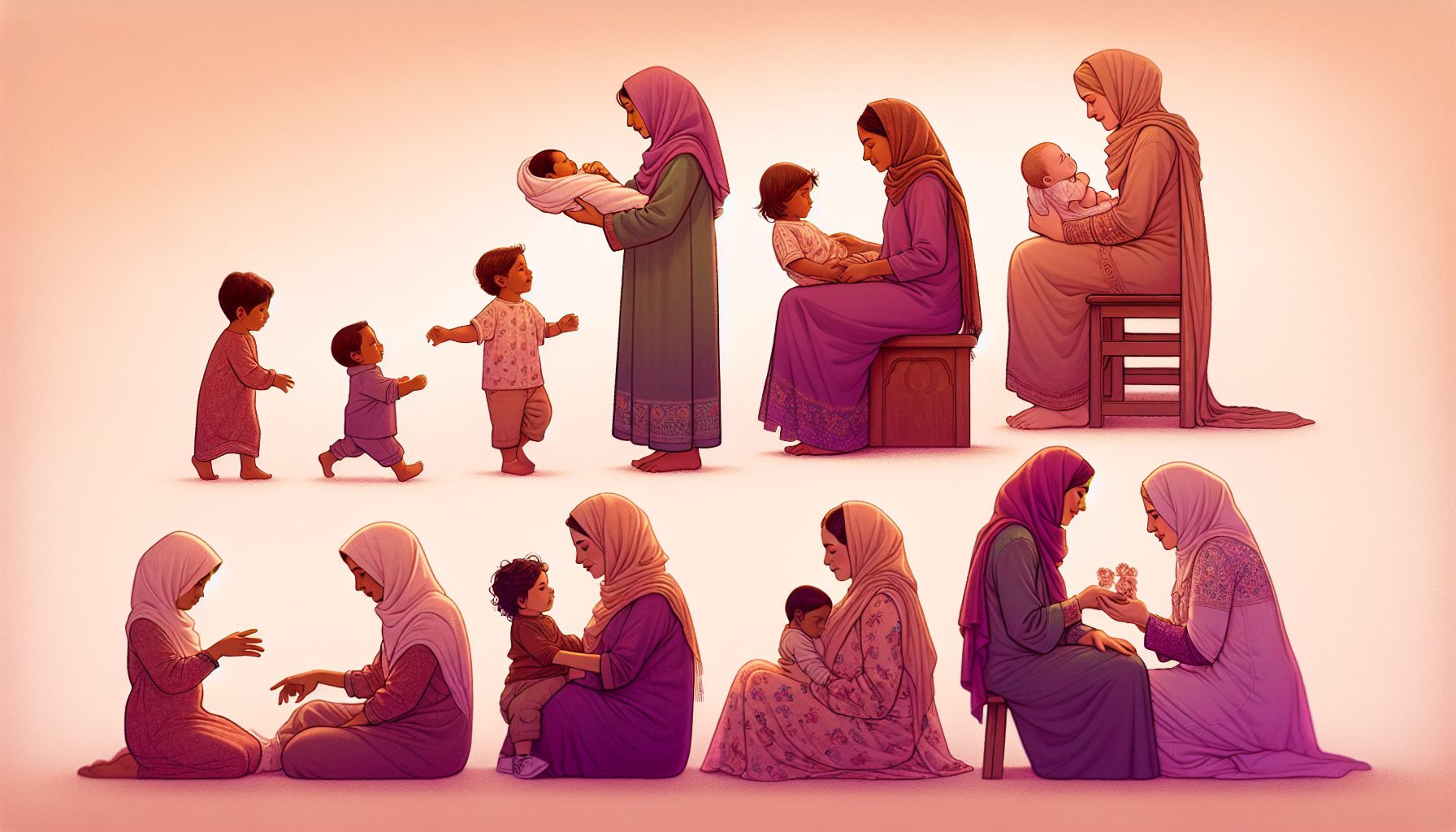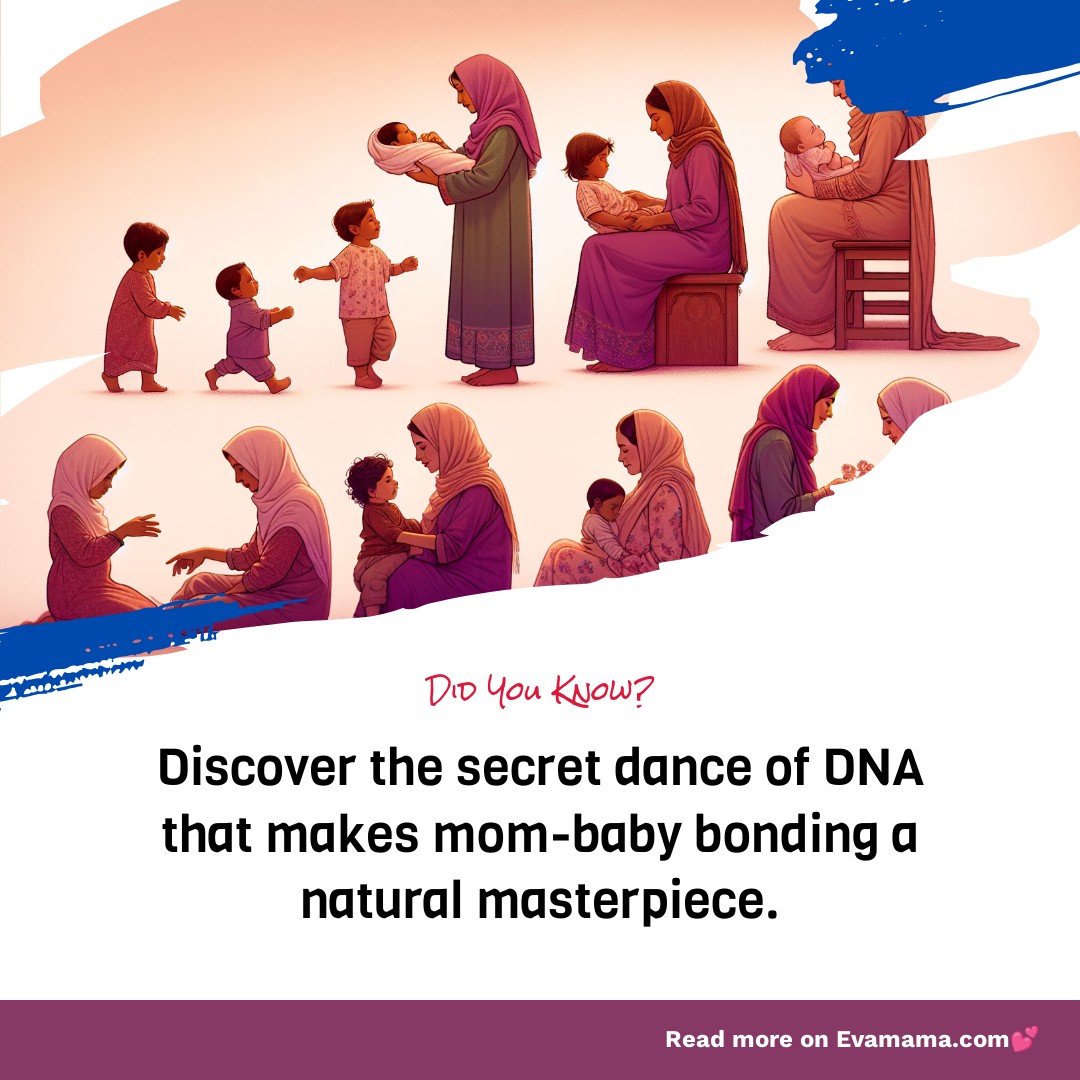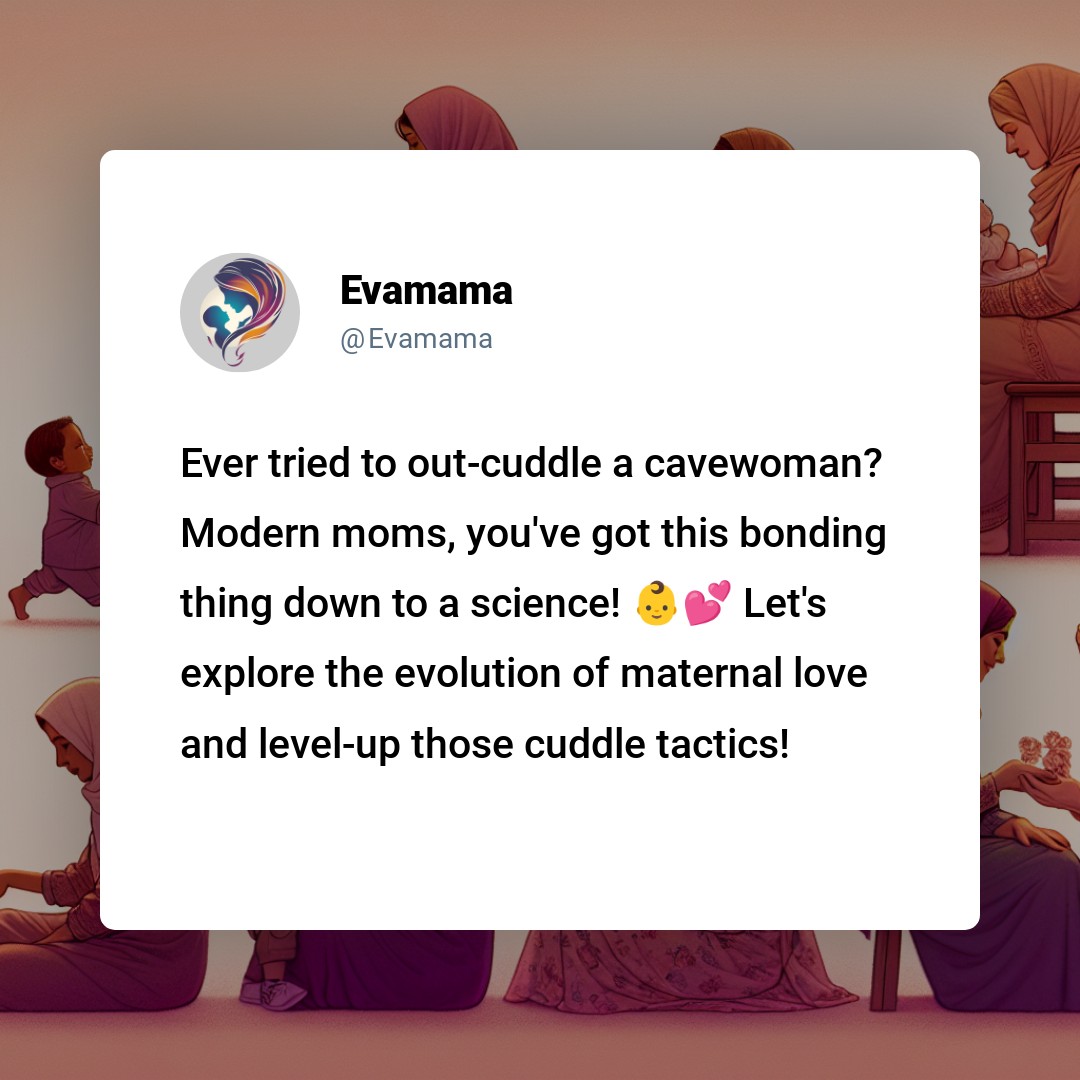Maternal Bonding Evolution: Unlock Techniques to Deepen Your Connection
The Historical Network of Maternal Bonding: From Survival to Emotional Ties
The bond between mother and child is a dynamic journey, ever-evolving with each passing era. Imagine the profound transformation from a time when a mother’s touch was a mere necessity for survival to today’s world, where it weaves the rich tapestry of emotional and psychological well-being.
Caught in the whirlwind of modern parenting advice, you might feel overwhelmed by the pressure to forge an unbreakable bond with your little one. It’s a dance of trial and error, where each step forward can sometimes feel like two steps back.
In the quiet moments, as I’ve cradled my own children, I’ve pondered the secrets to deepening that sacred connection. This article is a distillation of those reflections, a guide to nurturing the heart-to-heart link that every mother yearns to strengthen with her child.
Together, we’ll explore the timeless techniques that can fortify this precious bond, ensuring that your journey through motherhood is as fulfilling as it is love-infused.
Early Mother-Child Bonding
Historically, the bond between a mother and her child has been recognized as a powerful force, shaping not only the child’s immediate well-being but their long-term emotional and psychological development. To understand this fully, let’s dive into the biology of bonding.
The Biology of Bonding: Understanding Oxytocin
Oxytocin, often dubbed the ‘love hormone,’ plays a pivotal role in mother-child bonding. During childbirth and breastfeeding, a mother’s oxytocin levels surge, adopting an intense bond with her newborn. This hormonal release triggers nurturing behaviors and a deep sense of connection.
Practices of Bonding: From Ancient Rituals to Skin-to-Skin Contact
In various cultures, practices like babywearing or co-sleeping have evolved as means to strengthen this natural bond. Today, skin-to-skin contact is widely encouraged immediately after birth, facilitating early bonding and numerous health benefits for both mother and baby.
The Impact of Society and Culture on Bonding Practices
Societal norms greatly influence how mothers bond with their children. For example, the industrial revolution brought changes to family structures and bonding practices. As we progress, understanding how societal shifts impact bonding is necessary for adopting healthy mother-child relationships.
Bonding Through the Ages: A Historical Lens
Throughout history, maternal instincts were often guided by prevailing cultural beliefs. From the Spartan practice of communal child-rearing to the Victorian era’s emphasis on a more nurturing approach, these changes reflect our evolving understanding of the importance of early bonding.
The Everlasting Effects of Early Bonding
Research consistently shows that strong early bonds lead to better emotional regulation and social skills in children. A secure attachment can set the foundation for healthy relationships throughout life, emphasizing just how critical these early interactions are.
Cultural Narratives and Their Influence on Bonding Techniques
The stories we tell in our cultures can reinforce or transform bonding techniques. Narratives that celebrate close mother-child relationships may encourage more hands-on bonding practices, while those that promote independence might lead to more distant approaches.
Evolution of Bonding Techniques Over Time
| Era | Bonding Practice | Societal Influence |
|---|---|---|
| Ancient | Babywearing | Survival Needs |
| Medieval | Wet Nursing | Class Hierarchies |
| Industrial | Scheduled Feeding | Work Demands |
| Modern | Attachment Parenting | Psychological Research |
To strengthen your connection with your baby in today’s world, you might want to incorporate age-old wisdom with modern scientific understanding. Embracing practices such as responsive parenting and empathetic communication can nurture the precious bond you share with your child.
As you navigate the journey of motherhood, That every cuddle, every shared smile, and each soothing lullaby are more than just sweet moments – they are the building blocks of a deep and enduring bond that will support your child’s emotional landscape for years to come.
Nurturing the Mother-Infant Connection: Techniques for Stronger Bonds

Responsive caregiving is the cornerstone of a deep and enduring bond between you and your baby. It’s about being attuned to your infant’s cues and responding with love and consistency. Let’s dissect how you can enhance this precious connection.
The Magic of Skin-to-Skin Contact: A Simple Yet Powerful Bonding Tool
Skin-to-skin contact, often called kangaroo care, is a method that involves holding your baby close against your skin. This practice has been shown to have remarkable benefits for both you and your little one. It can stabilize your baby’s heart rate, improve breathing patterns, and even promote better sleep. For you, it can enhance milk production and reduce the risk of postpartum depression.
Embrace the Power of Touch:
From the moment your baby is born, hold them against your chest. The warmth of your body, the rhythm of your heartbeat, and the smell of your skin are incredibly comforting to your newborn.
Kangaroo Care:
Whenever possible, practice kangaroo care. This involves skin-to-skin contact by holding your baby, clad only in a diaper, against your chest. It’s a powerful way to strengthen your bond.
Breastfeeding: More Than Nutrition, a Bonding Experience
Breastfeeding is not just about providing nutrition; it’s a profound way to connect with your baby. The physical closeness, eye contact, and skin-to-skin contact during breastfeeding can enhance the emotional bond.
The Comfort of Nursing:
When you breastfeed, you’re offering comfort and security. It’s a time when you can both relax and enjoy the closeness.
A Routine of Connection:
Try to establish a peaceful, distraction-free environment for breastfeeding. This routine can become a cherished time for bonding.
Deciphering Infant Cues: The Language of Love and Understanding
Learning to read your baby’s signals is like learning a new language. It’s about noticing the subtle cues that indicate hunger, tiredness, or the need for a cuddle.
Attuned Responses:
Pay close attention to your baby’s different cries and movements. Responding promptly and appropriately to these cues can make your baby feel understood and secure.
The Dance of Interaction:
Engage in a back-and-forth interaction with your baby. Smile, make eye contact, and talk to them. This ‘dance’ is needed for emotional development.
Kangaroo Care: A Cozy Embrace for Emotional Well-being
Kangaroo care is not just for the early days. It can be practiced for months, especially if your baby is premature or has medical challenges.
Continued Closeness:
Keep your baby close to your skin as they grow. This can be especially comforting during vaccinations or medical procedures.
A Haven of Security:
Use a sling or baby carrier to maintain skin-to-skin contact while going about your day. It’s a practical way to keep the bond strong.
Parenting Programs: Guided Support for Navigating Motherhood
Parenting programs can be a valuable resource, offering guidance and support as you learn to bond with your baby.
Expert Advice:
Seek out programs that focus on responsive caregiving and attachment. They can provide you with tools and confidence.
Community of Moms:
Joining a parenting group can connect you with other mothers. Sharing experiences and advice can be incredibly supportive.
Support for Mothers Struggling to Bond
If you’re finding it difficult to bond with your baby, know that you’re not alone and support is available.
Professional Guidance:
Don’t hesitate to reach out to healthcare professionals if you’re struggling. They can offer strategies and support tailored to your situation.
Patience and Self-Compassion:
Bonding can take time, especially if your baby was premature or ill. Be patient with yourself and your baby as you navigate this journey together.
Bonding with your baby is a unique and personal experience. By embracing these techniques, you can strengthen the maternal-infant bond, creating a foundation of love and security that lasts a lifetime. .







